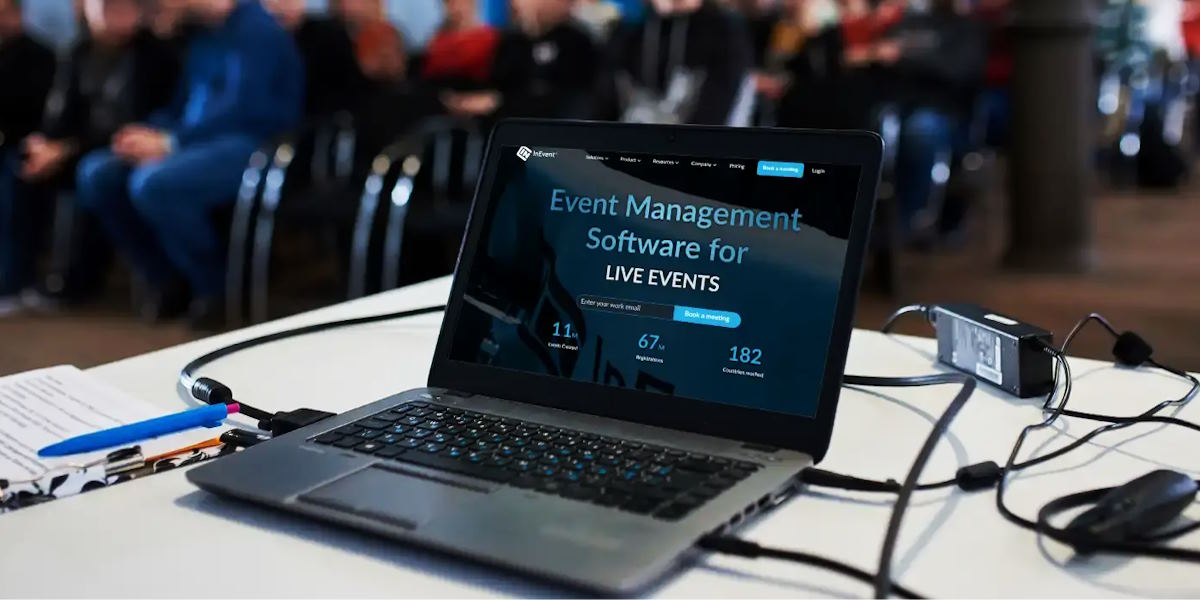
Planning an event can be a lot of work, and choosing the right event management software shouldn’t add to the stress. Think of it like setting up a toolkit—if you have the right tools, everything runs smoother. But with so many software options available, it’s easy to feel unsure about which one will truly get the job done. The good news? It doesn’t have to be complicated.
Key Features to Look for in Event Management Software
Now that you understand the needs of your event, it’s time to explore the features that can make your life easier. Here are some must-have features to consider:
- Registration and Ticketing: At the core of any event is the ability to manage sign-ups and ticket sales. Look for software that offers customizable registration forms, easy payment processing, and the ability to issue tickets. For larger events, you’ll want a tool that can handle bulk registrations and even group discounts.
- Attendee Management: Tracking who’s coming to your event, collecting attendee information, and keeping tabs on specific needs (like dietary restrictions or accessibility requests) is vital. A good software will allow you to view all this information in one place, making it easier to stay organized.
- Event Scheduling and Logistics: Whether it’s setting up multiple sessions for a conference or coordinating the logistics for a wedding, event scheduling is key. Look for software that lets you create detailed event timelines, schedule speakers, and track deadlines.
- Engagement Tools: Especially for virtual or hybrid events, engagement tools are a must. Look for features like live polls, Q&A sessions, or event-specific social media walls that help attendees connect and interact.
- Analytics and Reporting: After the event is over, you’ll want to know what went well and what could be improved. Event management software that offers analytics and reporting features can help you understand attendee behavior, ticket sales, and overall event success.
Scalability and Flexibility
Think of event management software like a pair of stretchy pants. They should be able to fit your event today but also adapt if your event grows. Scalability is crucial, especially if you plan to host more events in the future or your current event ends up being bigger than you anticipated. The software you choose should grow with you.
User Experience (UX) and Support
Nobody wants to spend hours trying to figure out how to use new software, right? This is why user experience (UX) is so important. Look for software that is intuitive and easy to navigate for both event organizers and attendees. A clean, simple interface will save you time and frustration, especially when you’re juggling other tasks.
But don’t just stop at usability—check out the support options the software provider offers. Are they available 24/7 in case something goes wrong? Do they provide helpful resources like video tutorials, live chat, or phone support? The better the support, the less stressful your event planning will be.
Integration with Other Tools
In today’s tech-driven world, event management software can’t function in a vacuum. Look for a platform that integrates well with other tools you’re already using. For example:
- CRM tools: These help manage customer data and can send personalized invites to potential attendees.
- Email marketing tools: Seamless integration with email platforms helps you send event reminders and updates.
- Social media platforms: Some software can integrate with social media to allow easy promotion of your event or even create event-specific hashtags.
By integrating with other tools, you can ensure that your software works smoothly with your existing systems, saving you time and effort.

Cost-Effectiveness
Price is always a consideration, but it’s not just about finding the cheapest option. The key is finding value. Event management software typically comes with a range of pricing models. Some charge based on the number of events, while others work on a per-attendee or subscription basis.
When evaluating cost, take the time to weigh the features against the price. Does the software offer everything you need at a reasonable cost? Are there hidden fees, like transaction costs for ticket sales or additional charges for integrations? If the software provides the right tools to save you time and reduce stress, it’s worth the investment.
Vendor Reputation and Reviews
Choosing the right event management software is a big decision, and you’re not alone in making it. Look for feedback from other event organizers to get a sense of the software’s performance and reliability. User reviews can be a treasure trove of insights into how well the software works in real-world settings.



